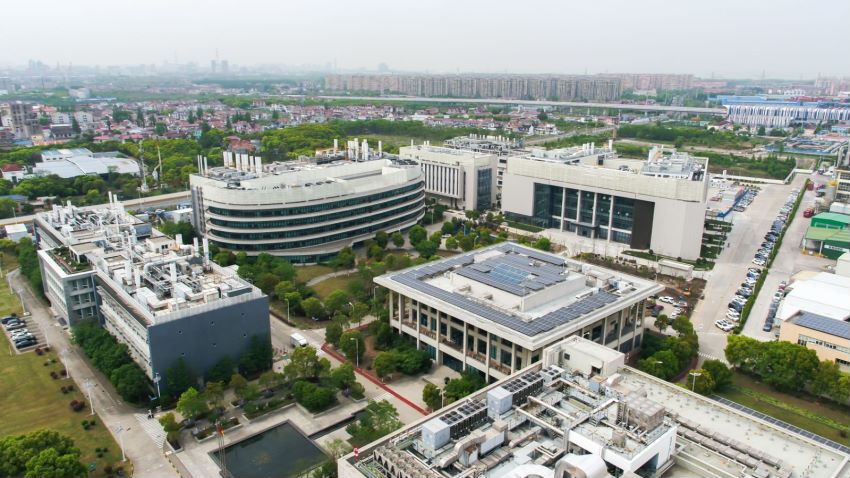
(Yicai Global) June 29 -- Innovation Campus Shanghai, German chemical giant BASF’s largest research and development site in Asia, has finished expansion for the third time since it opened in 2012 because of local and overseas demand in fast-growing sectors such as e-mobility, advanced manufacturing, and renewable energy.
The expansion will feature two new R&D buildings to accommodate a process engineering laboratory focused on the formation and handling of solids, a digital lab for dispersions and resins equipped with robotic automation, and labs for metal surface cleaning and industrial cleaning processes.
The site will also add labs for performance materials, including testing flame retardancy, electrical insulation, and durability, and the Creator’s Lab as a model-making workshop to inspire partners and researchers.
The expansion of Innovation Campus Shanghai marks another milestone in BASF’s presence in China, with the firm boasting a 49 percent share of the global chemical market, according Dr. Jeffrey Lou, president and chairman of BASF China.
“BASF has always been customer- and market-oriented, collaborating with local customers with local resources to drive green development and promote upgrading of China’s manufacturing industry,” Lou noted.
The expansion is “key to expanding BASF’s R&D capacities in China and in Asia Pacific,” said Dr. Detlef Kratz, president of group research at BASF.
BASF has a standardized system, which enables data sharing and collaboration among colleagues worldwide possible, Kratz pointed out. He cited the example of batteries. BASF is doing battery research all over the world, such as in the United States and Europe, while testing batteries in China.
“As a company, we have to work together across operating divisions, industries and regions to drive transformation towards the climate for the future,” added Kratz.
Both Kratz and Lou emphasized the importance of collaboration, both internally and externally.
Innovation Campus Shanghai also serves as a hub for BASF to connect with partners, including academia, customers, and stakeholders. Apart from researchers, the site also houses technical, marketing, and supply chain personnel to form an innovative ecosystem.
By working with renowned universities such as Tsinghua University and Fudan University, BASF has already completed 135 projects, with 65 now ongoing. BASF formed a strategic partnership with South China University of Technology last week, aiming to enhance scientific and technological solutions in areas like chemicals, materials, and industrial intelligence solutions.
Since entering the Chinese market, BASF and its partners have invested over EUR13 billion (USD14.19 billion) in China with more than 30 production sites and the company’s revenue has grown from EUR7.3 billion in 2017 to EUR11.6 billion last year.
Editor: Peter Thomas